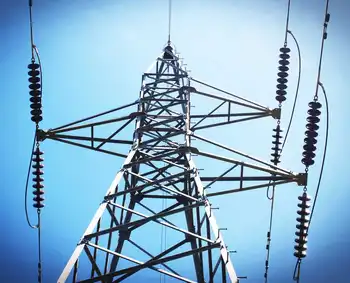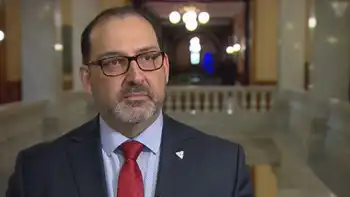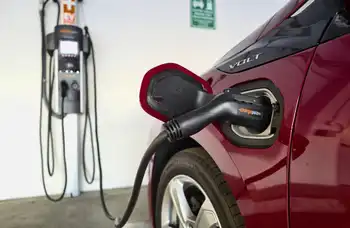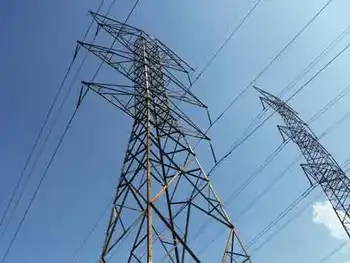Momentum for nuclear expansion is there: NEI
SAN FRANCISCO, CALIFORNIA - America's ability to use more nuclear energy to help address urgent and long-term economic and environmental challenges looks increasingly promising, industry leaders said here.
Despite short-term challenges that affect the electric sector as a whole, the nuclear energy industry is well-positioned for expansion, and federal and state policies that support construction of advanced-design nuclear power plants are taking shape, said top executives at the Nuclear Energy Institute's annual conference.
"Nuclear energy has strong bipartisan political support driven by high public favorability and growing recognition of nuclear energy's environmental and energy security benefits," said Gary Gates, president and chief executive officer of the Omaha Public Power District and chairman of NEI's executive committee.
Addressing 475 industry leaders, Gates said the industry's strong safety and operating performance provides a solid foundation for growth that can create tens of thousands of jobs and careers, help prevent emissions of greenhouse gases linked to the threat of climate change, strengthen U.S. energy security and meet rising electricity demand from a reliable, round-the-clock energy source.
"Developments related to new nuclear plants are very encouraging, with a new plant licensing process that is working and can be more efficient as we build additional standardized reactors, and with the federal loan guarantee program on solid footing, including the possibility of expanding three-fold," Gates said. "We're also seeing expansion of the U.S. nuclear supply chain and growing numbers of young people being attracted to careers in nuclear energy."
NEI convened its annual conference just days after Sens. John Kerry and Joseph Lieberman unveiled the American Power Act, legislation that aims to reduce greenhouse gas emissions and stimulate economic growth in part by encouraging construction of new nuclear power plants. One hundred and four reactors operating in 31 states provide 20 percent of total U.S. electricity and more than 70 percent of the electricity from carbon-free sources, even though they constitute only 11 percent of the nation's installed electric generating capacity.
License applications for 22 reactors that would be built over the next 10 to 20 years are under review by the U.S. Nuclear Regulatory Commission. Among other provisions, the climate legislation would implement the Obama Administration's request to increase to $54.5 billion, from the $18.5 billion currently allotted, the amount of federal loan guarantees that sponsors of new nuclear energy projects could use to access lower interest rates from commercial debt markets. This would accelerate new plant construction and, ultimately, reduce the cost to consumers of electricity generated by these facilities.
"Many in Congress recognize that there are compelling reasons for expanding nuclear energy that go beyond the need for new baseload electric generation," said NEI's president and CEO, Marvin Fertel.
"For example, in the Environmental Protection Agency analysis of the American Clean Energy and Security Act passed by the House of Representatives last year, nuclear power generation would have to increase 150 percent by 2050 to meet carbon-reduction targets in the legislation. If U.S. reactors are limited to 60 years of operation, 187 new nuclear plants must be built by 2050."
Fertel recounted a list of "transformational" policy achievements from the past year that position the industry well to help meet the nation's energy and environmental challenges. These included:
• the Obama Administration's solid support for nuclear energy, evidenced by his announcement of a conditional loan guarantee offer to Southern Company for two reactors at its Plant Vogtle nuclear power station in eastern Georgia
• approval of federal tax credits to jumpstart new manufacturing facilities for nuclear plant components in Louisiana and Tennessee
• conformation of three "highly qualified" nominees to bring the NRC to its full complement of five commissioners for the first time since 2007
• and Commerce Department support for nuclear energy trade missions to India, the United Arab Emirates and three Eastern European nations to help suppliers build relationships and expand their business.
Gates cited other positive developments, including the recent introduction in Congress of legislation that would facilitate the design and licensing of small 25 megawatt-350 megawatt reactors, Urenco's impending startup of a new uranium enrichment facility in New Mexico, and Iowa's recent enactment of legislation that provides funding for the state to study potential sites for a new nuclear power plant.
Both executives urged industry leaders to be vigilant and dogged in their efforts to maintain strong safety cultures throughout their companies.
Progress toward nuclear plant construction continues at the measured pace industry has predicted for several years. The first wave of new nuclear plant construction is expected to see four to eight new reactors begin producing electricity between 2016 and 2020.
Related News

UK families living close to nuclear power stations could get free electricity
LONDON - UK Business Secretary Jacob Rees-Mogg has endorsed a French-style system that sees people living near nuclear power stations receive free electricity.
Speaking at an event organised by Policy Exchange think tank, Jacob Rees-Mogg said: “Nuclear power is just fundamental. There’s no way we can get to net zero, or even have an intelligent electricity strategy, without nuclear.”
Highlighting that this was his view and not a government policy announcement, he said: “We should copy the French. As I understand, if you live near a nuclear power station in France, you get free electricity and that’s great because then, I’ll have…




